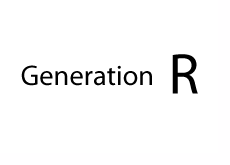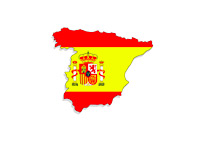"Generation R", aka "The Recession Generation"
 You may have come across the terms "Recession Generation" or "Generation R" while reading the newspaper or watching the evening news.
You may have come across the terms "Recession Generation" or "Generation R" while reading the newspaper or watching the evening news. There are several "generations" that you are probably familiar with:
"Baby Boomers" - those born between 1946 and 1964
"Generation X" - those born between 1964 and 1982
Add "Generation R" to the list now, as this phrase is being used more and more in the media and is starting to catch on.
"Generation R", aka the "Recession Generation", includes people who were born between 1980 and 1990.
"Generation R" includes recent graduates from college and high school who are quickly learning about the harsh realities of a 9.8% unemployment rate.
Members of "Generation R" are having to compete with more experienced applicants for job openings due to high unemployment numbers and are not having much luck. Sure, every unemployed person is having issues finding work right now, but those with no experience for finding it to be a particularly tough slog.
Many members of "Generation R" are leaving college with piles of debt and openly wondering what exactly the point of obtaining a degree was.
Many members of "Generation R" are already living with their parents or planning to move back home after they graduate due to their poor prospects for employment. According to CNN.com (via a recent poll from Twentysomething Inc.), 85% of college seniors polled indicated that they planned on moving back home with their parents once they graduated.
Members of "Generation R" were on the sidelines during the massive economic boom of the '90s. Members of "Generation R" watched, from the sidelines, as the NASDAQ soared in the late '90s and early 2000s. Many members of "Generation R" missed the real estate bubble that took place in the country between 2001-2007, and many members of "Generation R" are now unable to obtain mortgages due to poor employment prospects, weak credit records and tightened credit markets.
The "Great Recession" has dramatically changed the country, and members of "Generation R" are arguably paying the steepest price. There is an excellent chance that the national unemployment rate will remain unusually high for many years to come, which will result in many of the members of "Generation R" never being able to catch up and establish themselves in the world. Many "Generation R" members will have trouble paying off their college loans and credit card debts, which will result in them not being able to save for their own homes, etc.
Many of the members of "Generation R" will have lower standards of living than their parents.
--
So why does this matter?
"Generation R" includes a great number of people. These people, like those who lived through the "Great Depression", are going to have permanently altered views on spending, saving, etc.
Assuming that things don't suddenly turn around in the country, an entire generation of people will embrace frugality. Things won't suddenly change for the members of "Generation R" as they start getting older - they are being permanently scarred by the economic downturn in the country. Sure, the "Great Recession" hasn't been as severe as the "Great Depression", but tell that to somebody who recently graduated from college, can't find a job, is living at home with his/her parents and has mounting college and credit card bills.
For a nation that has been largely built on consumer spending and easy access to credit, having an entire generation of frugalists who would rather save than spend will have a dramatic impact on the country going forward.
Filed under: The Economic Meltdown



